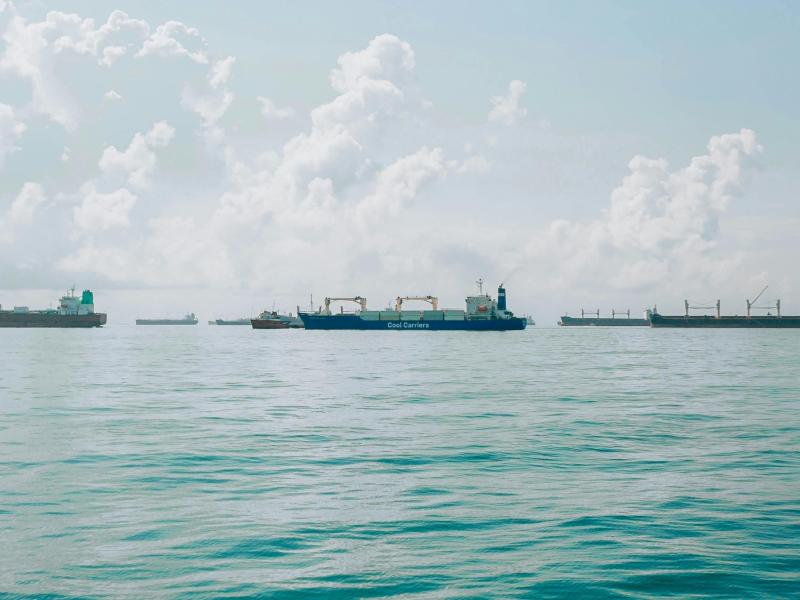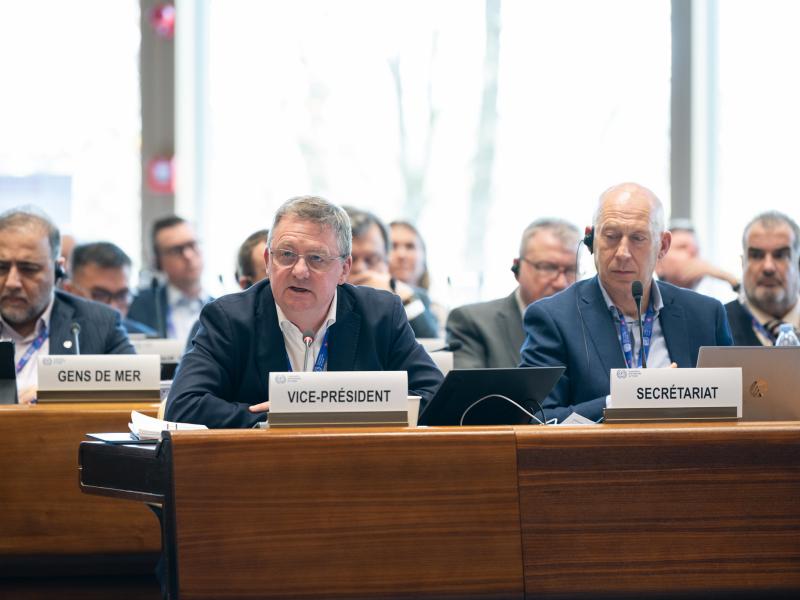These protocols should be viewed as minimum steps that employers should implement to protect dockers and all workers within the ports.
A Covid-19 committee should be set up with union representation to continually review the introduction of preventive measures for the workforce and monitor all protocols. All changes are to be implemented through the appropriate collective bargaining agreements and labour relations structures.
Moreover, ‘individual responsibility’ cannot be used as a pretext to replace corporate responsibility. Employers must recognise that workers are entitled to a safe and healthy workplace and the right to refuse unsafe work remains paramount.
The World Health Organization notes that the most common symptoms of novel Covid-19 are a recent onset of a new cough, high temperature/fever, shortness of breath and/or a loss of smell and taste.
If workers have any of these symptoms, they must immediately report to the appropriate person in the terminal, and be given full access to medical assistance, including prompt testing and appropriate medical assistance.
Any worker who contracts Covid-19 must follow guidelines on self-isolation and receive full pay. Terminal operators must also implement contact tracing measures to notify workers who have worked in close contact with anyone who has tested positive.
Hygiene and cleaning of equipment
• Qualified cleaning personnel must be instructed to disinfect touch points in vehicles at the beginning of each shift and after every operator change.
• Cleaning intervals must be increased on all equipment and in all areas of the terminal.
• Stations must be set up to ensure regular equipment sanitisation if extra cleaning is needed.
• Hand washing stations must be placed outside gates for truck drivers and other workers entering the site or passing documents.
• The workforce must be instructed to wipe down communal tools before and after use.
• Terminal operators must provide adequate hygiene facilities including soap, water, anti-bacterial wipes and sanitising stations.
• Terminal buses or vehicles must be sanitised at the beginning and end of each shift.
• All offices, break rooms and workstations must be deep cleaned and sanitised at the beginning and end of each shift. All equipment must be deep-cleaned and sanitised prior to a new operator entering or using the equipment.
• All “hot swapping” of equipment will be suspended, unless no other equipment is available. If “hot swapping” takes place, equipment will be thoroughly cleaned and ventilated prior to a new operator entering equipment.
• Workers must maintain a high-level of personal hygiene.
Personal Protective Equipment
• Terminal operators must provide all necessary personal protective equipment (PPE), including masks and other respiratory equipment, gloves, antiseptics, and hand-sanitisers available to all workers whose tasks require them. PPE provided must be adapted appropriately for both the bodies of women and men.
• Additional PPE including face shields will be made available for those working closer than the two metres (six foot) apart, such as lashers.
Social distancing
• Social distancing – maintaining a distance of two meters (or six feet) away from another person – must be practiced at all times.
• Facilities and amenities must be adjusted/rearranged to account for safe social distancing. Extra space should be provided for lunchrooms, toolbox talks, and meeting and break areas.
• Any person entering or exiting through entry points to the terminals must adhered to social distancing procedures.
• Workers required to use any on-site vehicles must also adhere to social distancing procedures within vehicles at all times.
Vendor/outside access
• Only vendors who are providing an essential service should be allowed to enter the terminal. Should they enter the terminal, they must wear adequate PPE and follow all hygiene protocols.
• Measures must be taken to limit interactions with drivers. Any contractors or truck drivers requiring access to the site must be required to wash hands and be provided with PPE if they interact with terminal employees or exchange documents. All truck drivers must stay in their cabs while on site, two metres (six foot) away from other people.
Leave and temporary working from home arrangements
• Working from home will be recognised as appropriate in certain circumstances and collectively agreed.
• When possible, greater flexibility should be provided for workers with caring responsibilities.
• Adequate wage and job protections for workers who should self-isolate due to identified high risks for themselves and/or their families, including underlying health conditions and pregnancy•
• This pandemic must not be used to lower standards or reduce the workforce including part-time or casual contract workers.
Vessel access
• Prior to arrival, vessel crew shall sanitise all access areas which shore-based dock workers come into direct contact with.
• Vessels must be declared free of contaminants and agreed with union health and safety officers before any work starts. Vessel Masters must report any crew illness through pre-arrival procedures and any reported illness must be reported to the union health and safety officers.
• Vessel operators must notify the terminal operators and relevant union(s) with full details of previous ports.
• Vessel crew must keep a safe distance from shore-based dock workers. Where crew require access to shore, a clear path will be agreed between shore-based workers and crew. Crew should remain inside the vessel while alongside except where required to perform critical duties while shore-based workers are aboard.
• Electronic communications should be used wherever possible.
• Instructions should be given for all exterior doors to be locked except for one inshore door to allow access to crew quarters, as per the protocol agreed to by ITF Seafarers’ Section and the International Chamber of Shipping.
• When dockers are not aboard, the gangway should be flown off the dock to prevent unauthorised access to the ship. Instruction should be given to the gangway watch only identified critical personnel are allowed on board.
Communication
• All risk assessments must be conducted with union representatives, including risks of increased workplace violence and harassment.
• Terminal operators must disseminate all pertinent information and governmental guidance on Covid-19 to all stakeholders, including the union(s).
• Unions and management shall continue to collectively review Covid-19 guidelines.
Training
• Terminal operators must provide relevant health and safety information, and instruction and training on Covid-19.



